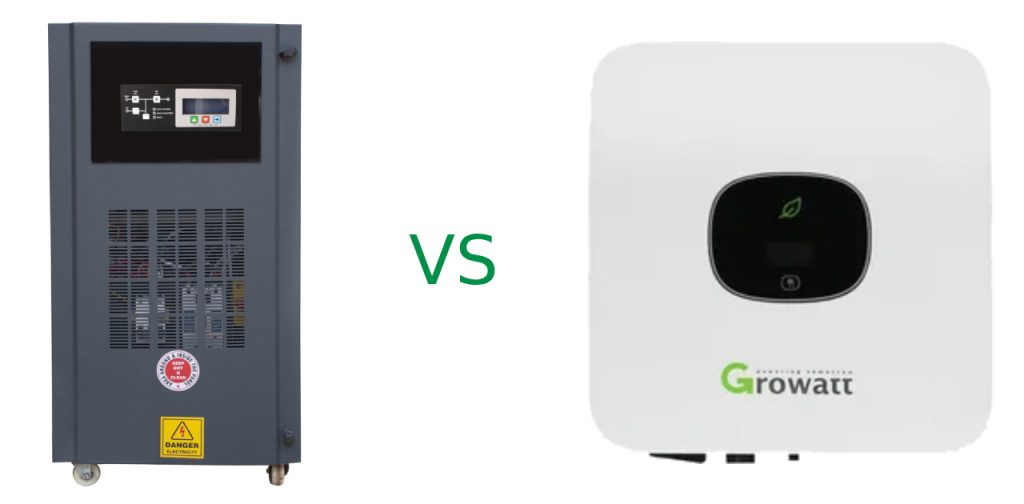Navigate Solar Energy: Off-Grid vs. On-Grid Inverters – Critical for Sustainable Power Solutions. Solar energy is booming, and choosing the right inverter is crucial for any successful solar setup. If you’re exploring sustainable power solutions, understanding the difference between off-grid and on-grid inverters is essential.
Off-Grid Inverters: Independence and Resilience
- Severing Ties with the Grid: Off-grid inverters are your lifeline in remote areas or where the grid is unreliable. They provide complete energy self-sufficiency.
- Essential Energy Storage: These systems always include batteries to store excess solar energy, ensuring power even when the sun doesn’t shine.
- Sizing & Efficiency Matter: Accurate sizing balances your energy needs against the inverter’s capabilities. High efficiency is key to maximizing your stored power.
On-Grid Inverters: Grid Integration and Cost Savings
- Working with the Grid: On-grid (or grid-tie) inverters connect to your existing power grid, making them the most common type for urban areas.
- No Batteries Needed: Energy you don’t use goes back to the grid, potentially earning you credits under a net-metering system.
- Safety First: On-grid inverters shut down during outages, protecting utility workers.
- Generally More Affordable: The lack of batteries makes these systems more budget-friendly.
Pros and Cons: Making an Informed Decision
| Feature | Off-Grid | On-Grid |
| Grid Reliance | Independent | Connected to Utility Grid |
| Backup Power | Yes, via batteries | No (unless with battery backup) |
| Energy Storage | Yes | No |
| Cost | Generally Higher | Generally Lower |
| Best for: | Remote areas, unreliable grid, desire for energy independence | Urban/suburban areas, reducing energy bills, reliable grid |
Choosing Wisely
Your ideal inverter depends on several factors:
- Location: Are you in a remote area or one with reliable grid power?
- Need for Backup Power: Is uninterrupted power during outages a priority?
- Energy Goals: Looking for complete self-sufficiency or primarily reducing grid reliance?
- Budget: Consider the potential long-term savings of each type, balanced with upfront costs.
The Solar Future
Both off-grid and on-grid inverters empower you to generate clean energy, cutting your carbon footprint and contributing to a brighter future.





